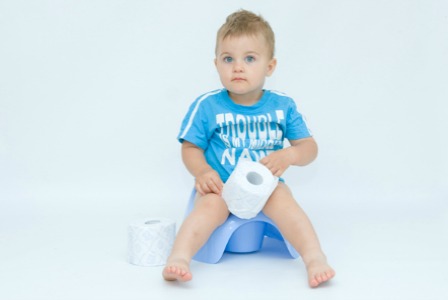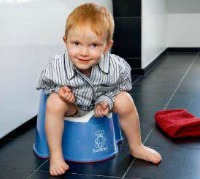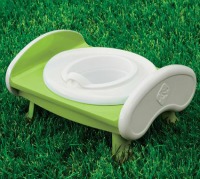
Potty training is a challenge to all parents, but can be a greater challenge to parents of a child with special needs. Determining if you should encourage your child to begin the process can be a difficult decision for parents.
Make the process easier on everyone
These readiness tips can help you decide if your special needs child might be ready for the potty training process.
Is your special needs child ready for potty training?
Potty training a child with behavioral, physical, intellectual or developmental delays or disabilities can be a long and challenging process for both Child and Parent. According to The American Academy of Pediatrics, potty training in general is a huge step in a child’s overall growth and one that should be celebrated with positivity by the child's parents. “Rather than focus on their child’s mistakes, which are inevitable in any case, they can use this opportunity to discover how he learns best and to demonstrate to him that he is able to progress.”
These questions will help you to determine if your special needs child is ready to begin the potty training process:
- Does your child recognize the difference between being wet and dry?
- Can your child sense if he or she needs to urinate or have a bowel movement?
- Can your child get to the toilet in time with or without your help?
- Can your child dress and undress him or herself?
- Can your child stay dry for at least two hours at a time?
- Is your child motivated to begin the process?
If you have any concerns or questions pertaining to your child’s development and potty training, consult your child’s doctor for advice.
Every child is different
From HealthyChildren.org:
"While no parent wants to push an already challenged child to perform in ways that are impossible, the sense of accomplishment experienced when he does succeed in this important aspect of self-care can make an enormous difference in his level of self-esteem."
It’s best not to compare your child’s growth and progress with other children beginning or in the potty training process. Every child, with or without special needs, develops at their own pace and while physicians have a general age range that they like to see a child fit in for developmental milestones, like potty training, the range and expectations become more individualized and accepted for a child with special needs. Instead of comparing your situation to others, surround yourself with a good support system to gather ideas and tips or just to talk about your struggles and accomplishments.
Patience is a virtue
Potty training a special needs child also requires a large amount of emotional prep for parents. “Children with special needs often begin toilet training later than other children, frequently completing the process at age 5 or even later… Learning to use the toilet can be physically painful to some, initially incomprehensible to others,” according to the AAP’s parent website, Healthy Children.
Emotional preparation for parents can also come in the form of support from each other, a therapist, pediatrician, family and friends. It’s best to find the humor in the situation and keep an even level of patience for your child while he or she musters up the courage and skills to take this big developmental step.
18 Best potty training books and videos >>
Potty training prep and must-haves for special needs children
If you think or feel your child might be ready but you're still unsure, consult your child’s physician, specialist or occupational therapist for an expert opinion. A trained professional can guide you with readiness preparations and offer specific insight based on your child’s individual needs — including any special equipment your child might benefit from. Some positive behavioral ideas include a visual reward chart, reward incentives, daily schedules and extra time doing a favorite activity.
It’s also important to stock your home full of potty training essentials to help make the process easier on everyone involved.

Brolly sheet

BabyBjorn chair

Travel trainer
How routines help special needs kids thrive >>
Source: Healthy Children
More about children with special needs
Travel tips for parents of children with special needs
How to deal with bullying and special needs kids
6 Ways to advocate for your special needs child